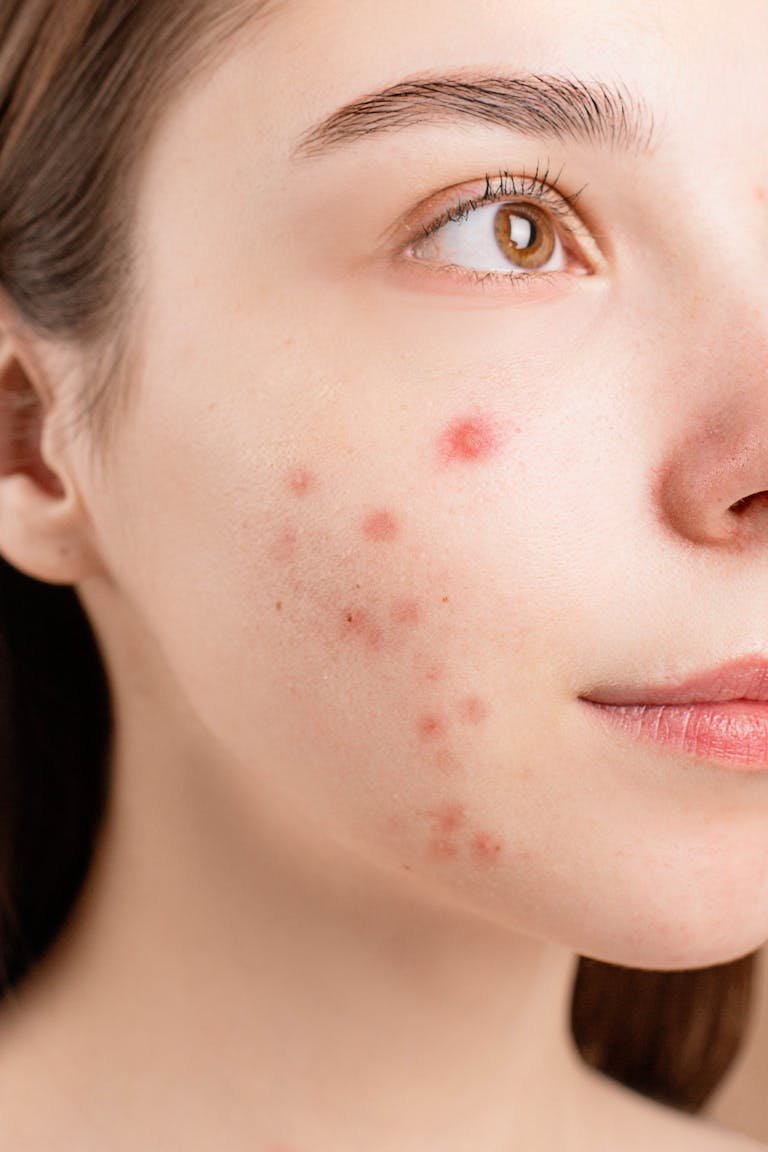Explore: What Vitamin Helps with Dry Skin?
In the eternal quest for radiant, glowing skin, the role of vitamins has become a central theme in the beauty industry. With countless serums, lotions, and health supplements promising to transform our complexions, the question arises: What vitamin helps with dry skin?
This comprehensive guide is here to demystify the subject. We’ll delve into the causes of dry skin, understand the impact on our skin’s health, explore the super vitamins that can combat the issue, and even touch upon the debate over topical versus oral skincare. Let’s peel back the layers and reveal the nourishment your skin craves.
The Importance of Addressing Dry Skin Concerns
Dry skin isn’t just an aesthetic issue — it can be a discomfort that affects our daily lives. The look and feel of dry, flaky skin can blow our self-esteem, but more so, it can signal broader health problems. From eczema to dehydration, dry skin can be a red flag for dermatological and nutritional imbalances.
Overview of Vitamins in Skincare
Vitamins are crucial micronutrients that play a vital role in nurturing our skin. They are central to cellular health, defending against environmental damage and preserving youthful elasticity. Incorporating the right vitamins into your skincare routine can make a visible difference, combating dryness and supporting overall skin health.
Understanding Dry Skin
The Causes and Symptoms of Dry Skin
Several factors can cause dry skin, including weather, genetics, diet, and harsh detergents. Symptoms range from mild tightness to severe itching, flaking, and cracking, particularly in dry areas.
Impact on Overall Skin Health
Dry skin feels uncomfortable and poses a barrier to the skin’s protective functions. When left untreated, it can lead to inflammation, susceptibility to irritants, and an acceleration of the visible signs of aging.
Vitamins for Dry Skin
Here we share what vitamin is good for dry skin.
Vitamin E: The Moisturizing Antioxidant
Vitamin E is known for its moisturizing and antioxidant properties. As an antioxidant, it can protect the skin from free radicals, which can cause fine lines and other signs of premature aging. When applied topically, it can also help to repair the skin barrier, locking in moisture and promoting healing.
Vitamin C: Collagen Production and Hydration
Vitamin C is a powerhouse when it comes to vitamins for dry, itchy skin. It stimulates collagen production, improving the skin’s firmness and elasticity. It also helps the skin retain moisture, providing a glowing and hydrated complexion.
Vitamin A: Skin Cell Turnover and Hydration
Vitamin A, or retinol, is significant for skin cell turnover. In other words, it assists in the shedding of old, dry skin cells, making way for new, hydrated ones. This can be transformative for those with persistently dry skin.
Vitamin B3: Barrier Repair and Moisture Retention
Also known as niacinamide, Vitamin B3 aids in repairing the skin’s natural barrier, which is crucial for retaining moisture. It also helps reduce inflammation and is effective in treating several chronic skin conditions characterized by dryness.
Topical vs. Oral Vitamins
The Benefits and Considerations of Each Approach
Topical application of vitamins can lead to direct and immediate results as they are absorbed directly into the skin. However, oral supplements can provide a more systematic and comprehensive approach to skincare, ensuring that the skin receives a consistent supply of essential nutrients from within.
Other Skincare Tips for Dry Skin
Hydration: From the Inside Out
Staying hydrated is paramount for healthy skin, so ensure you drink eight cups of water daily. Hydrated skin from within helps your skincare products work even better.
Choose Gentle Cleansers and Moisturizers
Selecting cleansers and moisturizers free from harsh chemicals and artificial fragrances can go a long way in maintaining the skin’s natural moisture balance.
Exfoliate Regularly
Gentle exfoliation can slough off dead skin cells, allowing moisturizers to penetrate more effectively and resulting in a smoother, more radiant complexion.
Additional Tips for Dry, Itchy Skin
- Incorporate omega-3 fatty acids into your diet through food sources like salmon and chia seeds or supplements. These healthy fats can help nourish dry skin from the inside out.
- Avoid long, hot showers, as they can strip the skin of natural oils and worsen dryness. Instead, opt for lukewarm water and limit your shower or bath time.
- Consider using a humidifier in your home, especially during the winter when the air is drier. This can help add moisture back into the air and prevent dry skin.
- Pay attention to your laundry detergent, as harsh chemicals can irritate and dry out sensitive skin. Stick to fragrance-free and gentle detergents to avoid any potential irritation.
- Taking a holistic approach to your skincare routine and incorporating essential vitamins can help keep dry skin at bay. Remember to consult a healthcare professional before making significant changes to your diet or supplement regimen, and always listen to your skin’s needs.
FAQ
Q: Can vitamin deficiency cause dry skin?
A: Yes, a lack of essential vitamins, such as vitamins A, E, and B3, can lead to dry skin. Incorporating these vitamins into your skincare routine can help alleviate the issue.
Q: Can I make any dietary changes to improve my dry skin?
A: Consuming foods rich in vitamins and antioxidants, such as fruits, vegetables, and healthy fats, can support skin health and combat dryness. Additionally, incorporating supplements into your diet can provide an extra boost of essential vitamins for nourished skin.
Q: Is using topical and oral vitamins for my skin okay?
A: Absolutely! Combining topical application with oral supplementation can provide a comprehensive approach to addressing dry skin concerns. However, it’s essential to consult with a dermatologist or healthcare professional before starting any new supplements.
Q: What is the best vitamin for dry skin?
There is no one “best” vitamin for dry skin, as every individual’s skin may respond differently to various vitamins. However, some of the top vitamins recommended for dry skin are vitamins A, C, E, and B3. It’s always best to consult a dermatologist or healthcare professional to determine which vitamins work best for your skin concerns.
Final Thought
What vitamin helps with dry skin? Many Vitamins play a crucial role in addressing dry skin. By understanding the power of these micronutrients, you can take an informed approach to your skincare regimen. Whether you incorporate them through topical treatments or oral supplements, these vitamins can be the key to unlocking the healthiest skin of your life.
Remember to combine these efforts with a holistic approach to skincare, including staying hydrated and adopting gentle skincare habits. Your skin is your body’s largest organ; treat it well, and the world will see the beauty that lies within.


